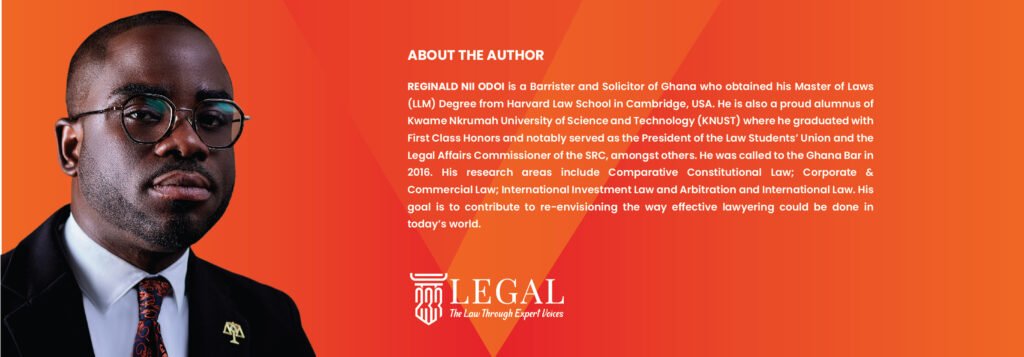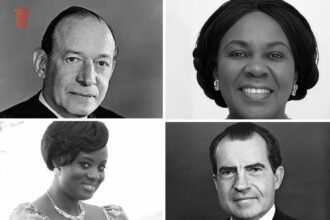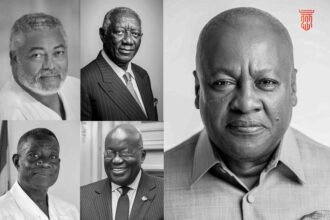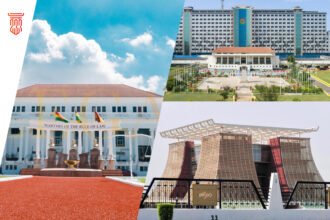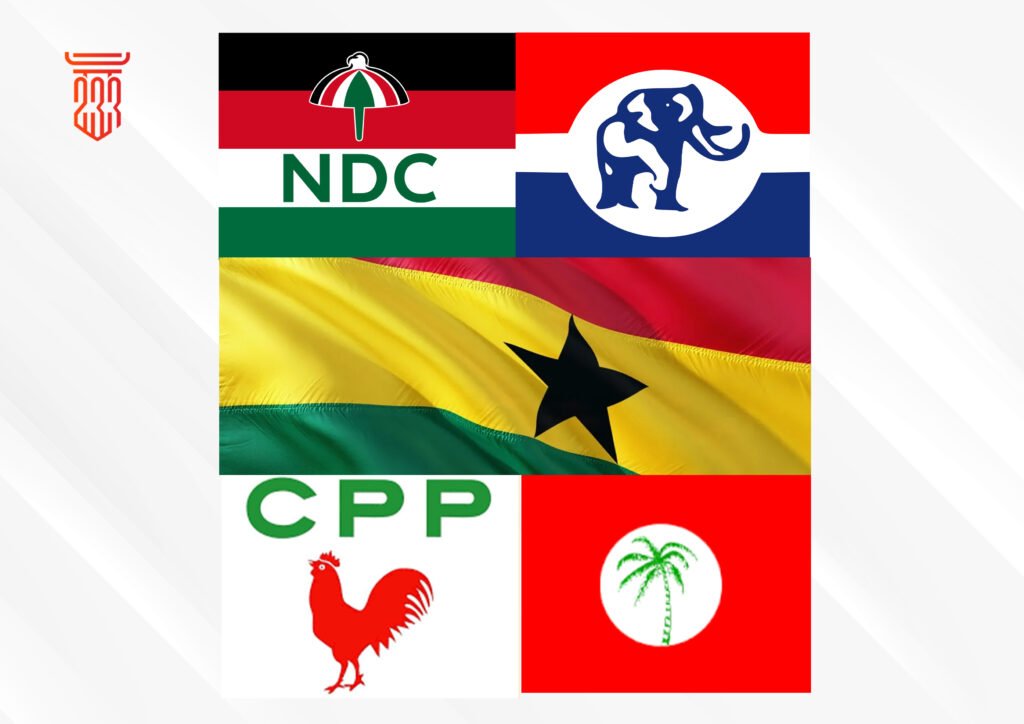

Introduction
We the people of Ghana, in exercise of our natural and inalienable right to establish a framework of government which shall secure for ourselves and posterity the blessings of liberty, equality of opportunity and prosperity…give to ourselves this constitution.
The Directive Principles of State Policy enshrined in chapter 6 of the 1992 Constitution emphasize that “Ghana shall be a democratic state dedicated to the realization of freedom and justice and accordingly sovereignty resides in the people of Ghana from whom Government derives all its powers and authority through this Constitution. As a matter of necessity, a government is made sovereign and assumes a position of supremacy in its appropriate sphere of action. That notwithstanding, it in fact does not possess all the powers. It is “We the People” who, as a matter of right and fact, hold the true power of Ghana and as a result chose to conduct the government through representatives. The Constitution of Ghana was ordained and established by the people of Ghana, in the exercise of their inalienable rights, for their own governance with the main purpose of securing for themselves and posterity the blessings of liberty, equality of opportunity and prosperity. That notwithstanding, in Ghana’s vibrant democracy, political parties play a significant role in shaping the country’s direction. However, the intense loyalty demanded by these parties often raises questions about the balance between party affiliation and national duty. The constitution in Article 3 emphasizes the importance of loyalty to the state and its institutions. Yet political parties frequently prioritize their interests over national concerns. This tension between party loyalty and national duty has significant implications for governance. This essay seeks to highlight the tussle between party affiliation and national duty.
We the people of Ghana
The people of Ghana do recognize that the most secure democracy is the one that assures the basic necessities of life for its people as a fundamental duty. Accordingly, we the people of Ghana, through a legal mechanism, chose to obtain rulers who are highly assumed to possess wisdom to discern and pursue the common good of society and as a result hold the public’s trust. This is a reasonable trust placed in “(wo)men” by “(wo)men” especially because heavenly angels are not physically present to avail themselves for the purpose of governance lest external or internal controls of government would not have been necessary. In enabling the government (past and present) to control the governed, the people of Ghana obliged it to control itself, guard the society against the oppression and more importantly to guard all parts of the society against the injustice of the other part. The people erected the constitution and means of government to establish justice, promote general welfare and secure the blessings of liberty. Where a specific duty is assigned by the people and individual rights of such people remain dependent on those assigned duties, an issue arises where any of the people (irrespective of their tribe or political affiliation) consider themselves to have been injured due to the inability of the establishment to honour the just expectations required of it. Overtime, when people have suffered injustice and have had some experience of both justice and injustice and are no longer able to obtain justice within the context of the surrendered sovereign powers to the state, they tend to enter mutual covenants to compromise the best of all in order to do or retaliate injustice leading to total anarchy which was not intended in the first place.
Political Party influence and the challenge of factionalism
The 1992 Constitution entitles persons with the right to form political parties and allows political parties to freely participate in shaping the political will of the people as well as to disseminate information on political ideas, social and economic programmes of a national character and most importantly to sponsor candidates for elections to any public office other than to District Assemblies or lower local government units. As a result, political parties are required to have a national character such that they accommodate members from all ethnic, religious and regional backgrounds and divisions. The truth, however, is that political parties often prioritize their interests over national concerns. This tension results in ineffective governance, corruption and a lack of accountability. Politicians often face pressure from their parties to conform to certain ideologies or policies even if they contradict the greater good. Additionally, the winner-takes-all approach to politics in Ghana creates an environment where party loyalty is rewarded over national interest.
In times past and more so currently, the gross negative effects of factionalism in Ghana which has been largely left unattended to, presents a great cause for worry and is contrary to the principles of the social contract through which the people surrendered their ultimate sovereignty. Indeed, with the fear that human life would naturally be “solitary, poor, nasty, brutish and short”in the absence of political order and law, the people of Ghana consented to and explicitly surrendered some of their freedoms to the authority of the state in exchange for the protection of their remaining rights and for an assurance of peace and social order. A clear breach of this contract for which sovereignty was ceded would entitle the people, no matter how few they may be, to feel betrayed, unsafe and hesitant to take things into their own hands in order to achieve the end of personal security and order. The primary problem of governance in times past and very much so now has been the control of factions and this increasingly is usurping the process of governance and putting life, liberty and property at risk. The people who feel at risk would overtime be empowered to find alternative means of gaining security for themselves and if left improperly coordinated would cascade into an uncontrollable state of anarchy and civil unrest.
Balancing party loyalty and national interest
It is important that politicians prioritize the constitution and the national interest over party loyalty. They must make independent decisions based on their conscience and the national interest rather than solely on party lines. In doing so, dialogue and consensus building should be encouraged between parties to promote national unity and cooperation. Also, it is necessary to promote transparency in governance to ensure that politicians are answerable to the public not just their political parties. Politicians must remember that they owe a duty to the state, in line with the constitution of Ghana, and this duty requires them to promote the prestige and good name of Ghana; to uphold and defend the constitution and the laws of Ghana; to foster national unity and live in harmony with all others and above all, to contribute to the well-being of Ghana. This simply means, putting the nation’s interest above party loyalty. By adopting these strategies and principles, Ghanaian politicians can balance party loyalty and national interest whilst promoting effective governance and national development.
Conclusion
The Government, state institutions and even all vehicles of political authority (whether or not in power) are mandated to ensure a perfect union for the people of Ghana to reside in and by so doing establish justice, ensure tranquillity and secure the blessings of liberty for all including posterity in line with the oath of fidelity to the constitution. It is for this reason we the people, in whom the sovereignty of Ghana resides and who are responsible for holding the leaders accountable and promoting the prestige and good name of Ghana, demand that the whole bargain of the social contract entered into be adhered to within the limits laid down in the Constitution of Ghana and in accordance with the principles of freedom, justice, equality, probity and accountability. Consequently, the people of Ghana demand that the government and all to whom public trust and authority has been reposed do well to foster a spirit of unity, stability and loyalty to the people of Ghana whilst instilling a culture of political tolerance. It is further demanded that in accordance with the laid down limits of power, the state does all in the power conferred on it by the people of Ghana to protect and safeguard the integrity of Ghana primarily seeking the well-being of all her citizens.
God bless!
